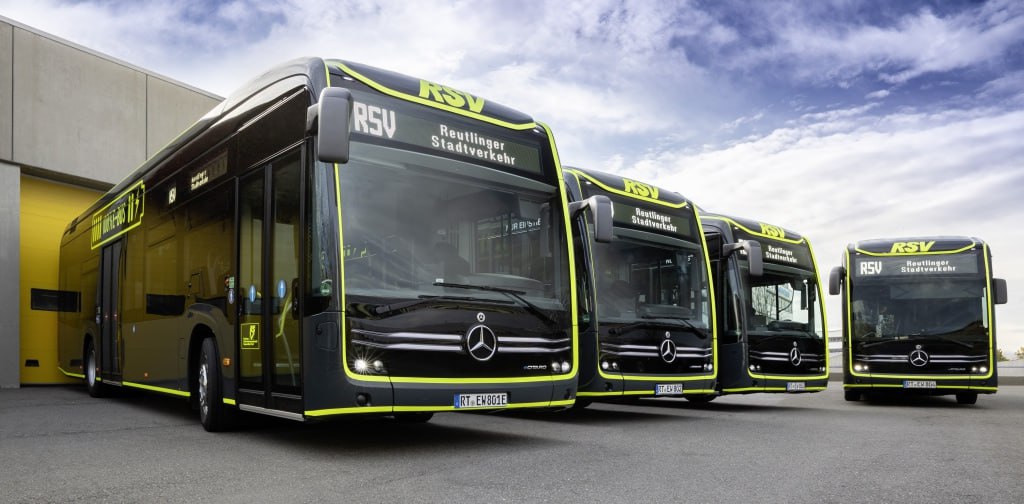From Chaos to Calm: Electric Powered Vehicles Enhancing Urban Mental Health

I offer sustainable design and construction services as a construction…
Read Next
Transportation plays a vital role in our daily lives, influencing not just our physical health but also our mental well-being. The shift towards sustainable transportation, especially electric-powered vehicles (EVs), offers numerous benefits that extend beyond environmental conservation. This transition can have profound positive effects on our psychological state and overall quality of life.
Elements of Sustainable Transportation & The Relationship with Mental Health
Reduced Noise Pollution
One of the most immediate benefits of electric vehicles is the significant reduction in noise pollution. Traditional combustion engines are noisy and contribute to urban soundscapes that can elevate stress levels and negatively impact mental health. In contrast, EVs operate much more quietly, creating a more serene and less stressful environment. This reduction in noise can lead to lower levels of anxiety and improve cognitive functioning by providing a quieter, more conducive atmosphere for concentration and relaxation.
Improved Air Quality
Electric vehicles produce zero tailpipe emissions, contributing to better air quality. Cleaner air can lead to fewer respiratory issues and reduce the incidence of pollution-related stress and illnesses. Breathing cleaner air has been linked to better sleep, improved mood, and enhanced cognitive performance. For city dwellers, the widespread adoption of EVs can lead to healthier, more vibrant communities.
Encouraging Active Transportation
Electric modes of transportation such as e-bikes and electric scooters promote a more active lifestyle. They often encourage people to combine their use with other forms of physical activity, like walking or cycling. Regular physical activity is a well-documented booster of mental health, aiding in the reduction of symptoms related to depression and anxiety, improving mood, and increasing overall mental sharpness.
Lower Stress Levels from Traffic Congestion
Electric vehicles often benefit from technology integrations that can make commuting less stressful. Features such as advanced driver assistance systems (ADAS) and autonomous driving capabilities reduce the cognitive load on drivers, leading to a less stressful driving experience. Furthermore, the quieter operation of EVs contributes to a more pleasant driving environment, reducing the overall stress associated with commuting.
Supporting a Sustainable Future
Using electric vehicles can also provide a psychological boost through the feeling of contributing to a larger cause. Many individuals derive satisfaction and a sense of purpose from knowing that they are taking steps to reduce their carbon footprint and protect the environment. This sense of contributing to the greater good can enhance feelings of self-worth and contentment.
With that in mind, let’s take a look some insights and observations made from the roll-out electric buses in Nairobi’s central business district:
- Serenity Amidst Chaos: The e buses stand out as a haven of tranquility in a city otherwise dominated by the cacophony of diesel engines.
- Whispering Passengers: Unlike the noisy diesel buses, the electric bus encourages quiet conversations among passengers reducing strain on voices occasioned by shout and the strain of struggling to hear one speak to surrounding noise.
- Relaxed Faces and An Oasis of Calmness: Commuters appear peaceful and relaxed, a stark contrast to the usual stress-laden expressions seen in the city. The electric bus truly serves as an oasis of calm, providing a respite from the urban din.
The Psychology of Transportation
Sustainable transportation illustrates how the psychology of transportation can significantly enhance emotional experiences and cognitive health. Transportation psychology examines the behaviors, attitudes, perceptions, and emotional responses of individuals using different transportation modes.
This interdisciplinary field draws on environmental psychology, social psychology, urban planning, and engineering to design transportation systems that are not only efficient and sustainable but also enhance the well-being of individuals and communities.
As such and with the roll-out of EVs, technology can be integrated into public transport and thereby revolutionize the commuter experience as showcased by the insights mentioned above.
The punctual and stress-free nature of these rides enables better time management and routine planning, reducing the stress typically associated with commuting in fossil fuel powered buses.
Broader Implications for Urban Planning
The benefits of electric buses extend beyond individual well-being to broader urban and economic impacts. Efficient and comfortable public transportation alleviates the stress of daily commutes, potentially boosting overall productivity. Additionally, quiet and comfortable commutes contribute to a higher quality of life, positively affecting the general well-being of urban populations.
Environmental Sustainability
- Reduction in Emissions: Electric buses produce zero tailpipe emissions, leading to a substantial decrease in urban air pollution. This reduction is crucial in combating climate change and improving the health of city residents. Cleaner air results in fewer respiratory and cardiovascular diseases, reducing public health burdens and healthcare costs.
- Energy Efficiency: Electric buses are more energy-efficient compared to their diesel counterparts, making them a more sustainable option for urban transit systems. Integrating renewable energy sources to power electric buses can further reduce the carbon footprint, promoting a greener urban environment.
Economic Productivity
- Cost Savings: While the initial investment in electric buses may be high, the long-term operational and maintenance costs are lower than those of diesel buses. This cost-efficiency can free up municipal budgets for other critical urban development projects. Reduced healthcare costs due to improved air quality and decreased noise pollution also contribute to economic savings.
- Enhanced Public Transport Efficiency: Electric buses can be integrated with smart city technologies, such as real-time tracking and efficient route planning, leading to more reliable and efficient public transport systems. Punctual and dependable public transportation reduces commuter stress, increasing productivity and economic output.
Urban Livability
- Improved Quality of Life: Accessible and affordable public transportation options like electric buses ensure that all city residents, regardless of income level, have reliable means of transportation. This can enhance social mobility and reduce economic disparities within urban areas.
- Urban Growth and Development: Sustainable transportation options can guide urban growth, encouraging the development of mixed-use neighborhoods where people can live, work, and play without needing to rely heavily on cars. This can lead to more cohesive and vibrant communities. Cities can also be designed with more pedestrian-friendly and cyclist-friendly infrastructure, reducing the dependency on cars. Dedicated lanes for electric buses and bike-sharing programs can be integrated into urban planning, making cities more livable and reducing congestion.
Conclusion
While the Building Green Construction newsletter typically concentrates on sustainability within the construction industry, it is crucial to recognize the interconnectedness of sustainability across different sectors.
Further research into the qualitative and quantitative impacts of electric transportation on mental health and productivity is encouraged. By sharing these insights, the goal is to inspire consideration of the broader implications of sustainable practices, advocating for sustainable and healthier urban environments.
Subscribe now for updates from Msingi Afrika Magazine!
Receive notifications about new issues, products and offers.
What's Your Reaction?
 PIN IT
PIN ITI offer sustainable design and construction services as a construction project manager and quantity surveyor. I focus on using sustainable materials for building. You can reach me at rnmbiu1@gmail.com














